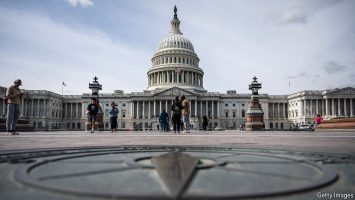
Calm discussions of transgender medicine are rare. “There are few other areas of health care where professionals are so afraid to openly discuss their views,” argues Hilary Cass, a British doctor. On April 9th she published a 388-page report, commissioned by England’s National Health Service, assessing the evidence for and against treatments for children who identify as transgender. Its conclusions will reverberate on both sides of the Atlantic, where standards of care differ wildly.
The treatments at issue include puberty blockers, cross-sex hormones and (rarely) surgery. Puberty blockers are drugs that delay the onset of puberty. Cross-sex hormones stimulate the development of opposite-sex characteristics: oestrogen causes males to grow larger breasts, testosterone gives females bigger muscles and deeper voices, among other things. “There is not a reliable evidence base” to show that the benefits of offering such treatments to children outweigh the harms, says the Cass Review. Many studies have been published, but they are often of “poor quality”. Some draw conclusions from tiny samples. Some lack control groups, so that outcomes for patients receiving treatment are not compared with outcomes for those who do not. Far too little effort has been made to observe long-term effects. Some clinics even resisted attempts to gather such data. “It is unusual for us to give a potentially life-changing treatment to young people and not know what happens to them in adulthood,” Dr Cass told the BBC.
In the rich world, approaches to transgender care for children now fall into three broad categories: laissez-faire, draconian and cautious. The laissez-faire approach, common in blue states in America, argues that if children identify as the opposite gender and desperately want to adjust their bodies to align with that feeling, they should be allowed to do so. If denied such “gender-affirming care”, their lives will be blighted and they may consider ending them, proponents say. Some activists add, in forceful language, that only transphobes could possibly object. The American Academy of Pediatrics, a national body, supports the provision of puberty blockers and cross-sex hormones to minors, while evaluating new evidence.
The draconian approach is that such treatments should simply be banned. This is common in red American states, where some politicians stir up antipathy towards transgender people to win votes. Some states combine bans on treatment with harsh penalties for doctors who offer it. Florida threatens them with five years in prison; Idaho, ten. Texas has tried to investigate whether parents who seek such care for their children are fit to be parents; though this is now tied up in court. In all, 22 American states have outlawed or restricted transgender care for adolescents, most of them recently.
The cautious approach, which informs policy in Denmark, Finland, Norway, Sweden and now England, stresses that more evidence is needed. No one is sure why the number of children who identify as transgender has exploded in the past decade. Before giving them drugs which can make them permanently sterile and unable to experience an orgasm, medics should explore other interventions. Many trans-identifying children are on the autism spectrum. Many suffer from depression, and should be offered counselling. Many eventually desist, sometimes realising that they are gay, not trans. Health providers should not rush into invasive treatments even if the child demands them. Thus, the NHS in England now offers puberty blockers only as part of a clinical trial. Cross-sex hormones should be provided only to children over 16, and with “extreme caution”, says the Cass Review.
As The Economist has argued before, the cautious approach is the wisest. Transgender people should always be treated with respect and kindness, and adults should be free to make their own decisions about their bodies. But as Dr Cass concludes, it is essential to guard against “the creep of unproven approaches into clinical practice”. This may be hard in an area that has become so politically contentious. It may also be harder in health systems where private doctors are paid for each intervention, and thus have an incentive to give patients what they ask for. Nonetheless, it is the responsibility of medical authorities to offer treatments based on solid evidence. ■



